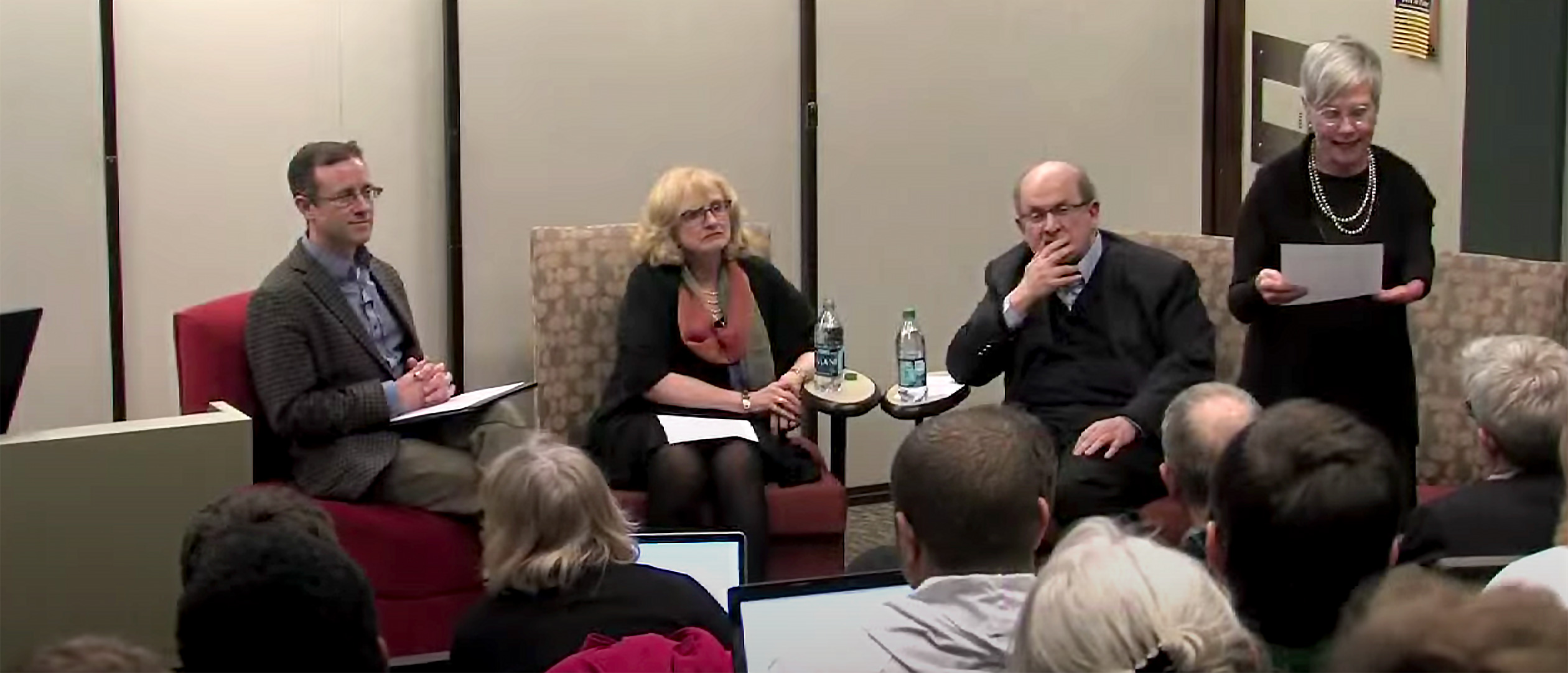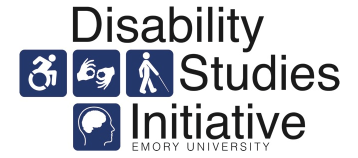
About Us
The Disability Studies Initiative at Emory is a working group generated across both departments and schools dedicated to interdisciplinary research and teaching related to disability (broadly construed). The Initiative is led by a group of faculty and students who are interested in the social, cultural, historical, political, and legal dimensions of disability in our world. Our mission is to promote the growth and increase the profile of Disability Studies at Emory University.
What Is Disability Studies?
 Disability Studies is an exciting interdisciplinary field of inquiry that expands the understanding of disability from a health science perspective to consider it as a civil and human rights issue, a minority identity, a sociological formation, an historic community, a diversity group, and a category of critical analysis in culture and the arts. At its core, Disability Studies explores how societies draw distinctions between normal and abnormal bodies and minds, how those distinctions matter in the lives of the disabled and the non-disabled alike, and how people with disabilities have transformed the world around them. As opposed to a medical model that views disability as a problem that needs to be corrected, cured, or eliminated, Disability Studies views disability as a key human experience that leads to important perspectives on the full range of human social, political, cultural, and intellectual activity.
Disability Studies is an exciting interdisciplinary field of inquiry that expands the understanding of disability from a health science perspective to consider it as a civil and human rights issue, a minority identity, a sociological formation, an historic community, a diversity group, and a category of critical analysis in culture and the arts. At its core, Disability Studies explores how societies draw distinctions between normal and abnormal bodies and minds, how those distinctions matter in the lives of the disabled and the non-disabled alike, and how people with disabilities have transformed the world around them. As opposed to a medical model that views disability as a problem that needs to be corrected, cured, or eliminated, Disability Studies views disability as a key human experience that leads to important perspectives on the full range of human social, political, cultural, and intellectual activity.
At Emory, we are particularly interested in how disability intersects, parallels, and sometimes coincides with other identity categories and zones of socio-cultural difference such as race, sexuality, gender, class, religious affiliation, region, and nationality. Indeed, disability can be viewed as a unifying identity category, one that potentially applies to all humans across cultures and at different points in the life cycle.
Recent and current projects undertaken by faculty and students at Emory include: studies of disabled artists, writers, and video game producers; the history of Universal Design; the cultural logic of eugenics; consideration of euthanasia from a bioethical perspective; how disability was managed on slave plantations; the history of disabled people as medical research subjects; the cultural lives of patients in psychiatric hospitals; the history of left-handedness as a disability; the history of aesthetic surgery; studies of disability's legal history; autism as a cross-cultural phenomenon; and an ethnography of religious hospice movements.
What We Do
 We are devoted to developing scholarly and artistic programming that stimulates conversation across a range of disciplines, both within the Emory community and in the broader public. Participants in the initiative present works-in-progress; host visiting scholars, performers, and writers; plan film screenings, reading groups, and conferences; and provide networking and mentoring opportunities across disciplines. We also work collaboratively with other area institutions -- universities, museums, archives, advocacy groups, and arts centers -- to promote disability-related issues and events in the Atlanta area.
We are devoted to developing scholarly and artistic programming that stimulates conversation across a range of disciplines, both within the Emory community and in the broader public. Participants in the initiative present works-in-progress; host visiting scholars, performers, and writers; plan film screenings, reading groups, and conferences; and provide networking and mentoring opportunities across disciplines. We also work collaboratively with other area institutions -- universities, museums, archives, advocacy groups, and arts centers -- to promote disability-related issues and events in the Atlanta area.
The initiative has received generous support from Emory College, the Laney Graduate School, Emory's Office of the Provost, and the Center for Ethics. Participating members come from fields as diverse as English; Law; Women's, Gender, and Sexuality Studies; History; Sociology; Political Science; Public Health; Neuroscience; The Institute for Liberal Arts; Theology; Bioethics; and Art History.
Our charge is to identify, coordinate, support, build and disseminate existing interdisciplinary disability studies at Emory; to further a university-wide commitment to Access through curricular development, scholarly initiatives, and artistic programming featuring issues of disability in relation to other aspects of the human experience; and to provide ongoing advice to Emory College and the University about increasing Emory's institutional, intellectual, and ethical commitment to accessibility.
Read Dr. Rosemarie Garland-Thomson's 2013 Faculty Convocation Address, which further describes what Disability Studies, broadly, can and has done for the built environment.